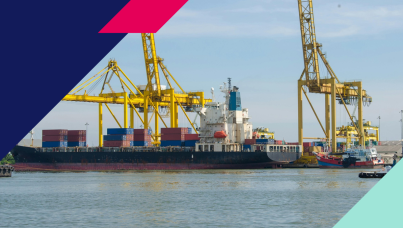WHILE CONFIDENCE IN NATIONAL ECONOMY PLUMMETS TO 1990 LEVELS (42% SAY ECONOMY WILL GET "WORSE") AND ONE-THIRD (34%) SAY WE'RE HEADED FOR RECESSION (UP UNPRECEDENTED 9 POINTS IN ONE WEEK AND 20 POINTS SINCE JANUARY)...
In a poll released today and conducted during the third week anniversary of the terrorist attack on New York City, the findings show that while Canadians' confidence in the national economy has been shaken to the core with 34% now believing that the Canadian economy over the next twelve months is headed for a recession and 42% now believing that the Canadian economy over the next year will get "worse", a plurality (26%) say their personal economic situation is likely to "improve" over the next year and 59% say that it will "stay the same". This compares with 14% who say that their personal financial situation will get "worse" and only 6% who believe that the Canadian economy will continue to grow as strongly as it has in recent years.
In fact, as if economic ground zero is still off on the horizon, over two-thirds of Canadians (65%) describe the current state of the national economy as "good or very good".
Perhaps most significant, during the week when various sectors and national companies were issuing pink slips to thousands of workers, 81% indicated that they were not worried about losing their job or being laid-off -- only 18% are concerned which is the lowest level of job anxiety registered in 15 years of tracking this dimension at Ipsos-Reid.
These are the findings of an Ipsos-Reid/CTV/ Globe and Mail poll conducted between October 2nd and October 4th, 2001. The poll is based on a randomly selected sample of 1,000 adult Canadians. With a sample of this size, the results are considered accurate to within 1773.1 percentage points, 19 times out of 20, of what they would have been had the entire adult Canadian population been polled. The margin of error will be larger within regions and for other sub-groupings of the survey population. These data were statistically weighted to ensure the sample's regional and age/sex composition reflects that of the actual Canadian population according to the 1996 Census data.
The National Economic Outlook Hasn't Been This Bad Since 1990 ...
Economic confidence in the National economy continued to tumble this week compared to last - with 42% saying the economy is going to get "worse" over the next week compared to 35% who said so last week. To put it in perspective, this black mood has jumped 17 points since May 2001. In April 1990, 58% said the economy would get "worse" and by March 1991 this had improved to 31% saying it would get "worse".
But the analysis shows that the trend line for pessimism started between November 2000 with 17% saying it would get "worse" and January 2001 when this jumped to 28%. It would appear that while the trend was in place at the beginning of the year, the last two weeks have pushed it to new levels of anxiety. Those who believe the Canadian economy will get "worse" are led by those from Quebec (48%), followed by British Columbia (43%), Atlantic Canada (43%) and Ontario (41%). The least pessimistic, but still noticing dark clouds on the horizon are from Alberta (36%) and Saskatchewan/Manitoba (34%).
Nineteen percent of Canadians think the national economy will "improve" with Saskatchewan/Manitoba (26%) and British Columbia (25%) as the lone beacons. Just over a third (37%) say it will remain the same. Those who are most pessimistic about the national economy are 35 to 54 years old (48%) - with no variation when it comes to income type or gender.
And a third (34%) say we're headed for a recession...
In comparison to last week, more Canadians think we're headed for a recession - up from 25% to 34%. Earlier tracking indicated 19% in March and 14% in January who felt this way. Fifty-eight percent now say that the economy will slow down but continue to have some growth and 6% say that the Canadian economy will continue to grow as strongly as it has in recent years.
Those most likely to believe we're headed for a recession reside prominently in Quebec (46%) and are 35 to 54 years of age (40%).
Essentially, while specific regions and the middle aged are more pronounced on how they view the situation, there are virtually no differences in income or gender when it comes to viewing the economy and the recession.
But While It Appears To Many That The Future is Bleak, They Think the Canadian Economy, Right Now is Good...
In fact, in terms of the current economic conditions in this country as a whole, 65% describe the overall state of the Canadian economy, right now as "very good" (4%) or "good" (62%) compared to 29% who describe it as "poor" or "very poor" (5%). The regions most likely to give a thumbs up to current conditions are in Atlantic Canada (73%), followed by Alberta (72%), and Ontario (69%). Young people (18 to 34) are more likely than others to say things are "very good/good" (69%), as well as women (66%) and middle income ($30k to $59k) at 67%.
And Most Say That For They and Their Family Their Own Economic Situation Will "stay the same" or "improve" ...
In particular, 26% say their personal and family economic situation will get better or the next year (similar to 1995 optimism) with those in Alberta (36%) and British Columbia (31%) as well as younger (41%) people leading the way, while 59 percent of Canadians, particularly those in Quebec (67%), Atlantic Canada (64%), Ontario (56%) and Saskatchewan/Manitoba (56%) say things will "stay the same" - the case being so for older Canadians, women and those in middle to lower income.
Finally, and Perhaps Most Important, Only One in Six Are Worried They'll Lose Their Job...
Which is, at 18% worried compared to 81% not worried, the lowest level of job anxiety tracked since Ipsos-Reid began asking the question before 1990. The only variations in an otherwise low anxiety country are in British Columbia (21%) and Saskatchewan/Manitoba (22%) where anxiety is higher than the national average. The lowest anxiety levels are in Alberta (10%) and Atlantic Canada (14%).
To view the complete media release, please download the PDF file.
-30-John Wright
For more information on this news release, please contact:
John Wright
Senior Vice-President
Public Affairs
Ipsos-Reid
(416) 324-2900



